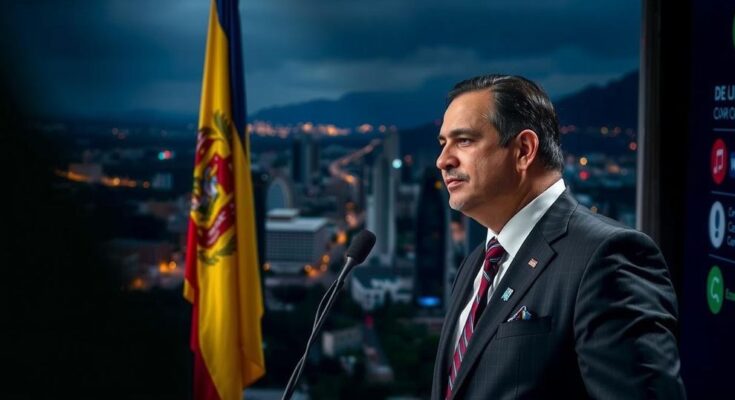Colombia’s Finance Chief, José Antonio Bonilla, resigns under scrutiny for corruption at a time when tax increases are essential. His departure leads to a decline in dollar bonds and increased default swap rates. President Gustavo Petro indicates that the resignation is due to external pressures rather than guilt.
The resignation of Colombia’s Finance Chief, José Antonio Bonilla, comes at a precarious moment as the country navigates significant economic challenges, including potential tax increases. The announcement triggered a decline in Colombian dollar bonds, erasing earlier gains, while five-year credit-default swaps surged by four basis points, reflecting heightened market concerns. President Gustavo Petro took to social media platform X to express that Bonilla’s departure stemmed not from guilt, but rather from pressures facing a loyal government official amidst ongoing corruption investigations.
Colombia is currently undergoing economic restructuring, prompting discussions on necessary tax hikes to bolster fiscal health. The resignation of a finance chief during this critical period raises alarms about the stability of economic policy and investor confidence. Allegations of corruption against Bonilla further complicate the political landscape, as his departure may influence the administration’s strategy and response to economic demands.
In conclusion, the resignation of Finance Chief José Antonio Bonilla amidst corruption allegations and the prospect of tax increases poses significant challenges for Colombia’s economic climate. President Petro’s acknowledgment of the situation highlights the complexities surrounding loyalty to government initiatives and the pressures faced by officials. This transitional phase necessitates careful management to ensure continued economic stability and investor trust.
Original Source: news.bloombergtax.com




